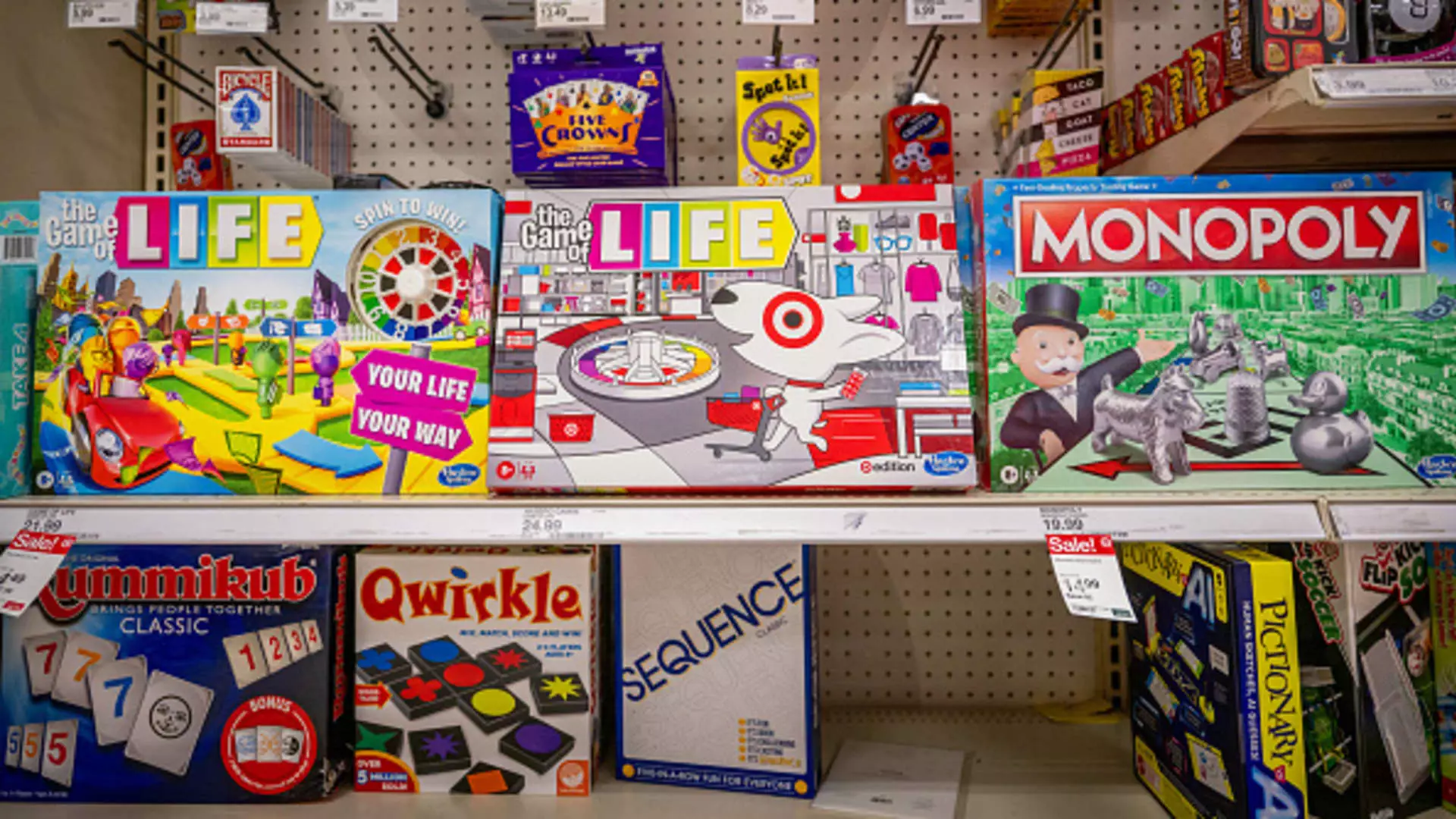The trade conflict between the United States and China has brought the American business landscape to an unsettling crossroads. Hasbro, the iconic toy manufacturer, finds itself at the mercy of punitive tariffs that threaten to decimate its profits. A staggering 145% tariff on imports from China can spell disaster for the company, potentially impacting its bottom line by as much as $300 million. This dire projection casts a shadow over the otherwise buoyant financial performance reported by the company. The disconnect between positive earnings and the looming specter of tariffs signals a troubling trend—no sector is safe from the escalating ramifications of trade hostilities.
Commentators on economic policy often wax poetic about the virtues of free trade, touting its ability to foster innovation and create jobs. However, the reality on the ground tells a different story. While Hasbro reported better-than-expected earnings, investors remained fixated on the uncertainties connected to international trade. This fixation illuminates a cardinal reality—the cumulative costs of prolonged uncertainty can obliterate the benefits derived from favorable financial reports. In a climate where every dollar counts, the unpredictability of tariffs invokes a chilling effect on business planning and consumer sentiment.
The Illusions of Resilience
Hasbro’s CEO, Chris Cocks, asserted that the company is “well positioned” despite the clouds of uncertainty hanging overhead. Such claims, however, can come off as hollow optimism amidst daunting realities. The very essence of the business model—including pricing strategies and supply chain dynamics—stands vulnerable against the onslaught of punitive tariffs. Cocks’ assertion that Hasbro has the “strategic flexibility” to navigate these turbulent waters lacks the weight it needs when considering the sheer scale of the threat posed by these tariffs.
As Cocks pointed out during Hasbro’s recent earnings call, tariffs ultimately inflate consumer prices and create additional structural costs, which could lead to potential job losses. To encapsulate the dilemma faced by Hasbro is to recognize the dangerous tightrope the company must walk—striving to mitigate costs while wrestling with the ongoing pressures of rising consumer prices. With a significant portion of its product manufactured in China, the risks seem glaring for a business that prides itself on its strong consumer connections.
Shifting Sands of Sourcing
In an effort to combat the financial strain of tariffs, Hasbro is contemplating a radical restructuring of its supply chain. The notion of relocating production to countries like Turkey could alleviate some tariff burdens, yet this comes at an undeniable cost. Shifting production domestically entails significantly higher manufacturing expenses, a reality that could further alienate consumers from an already pressured market. The optimism of “strategic flexibility” masks the underlying question: can American companies truly adapt without sacrificing their core principles of affordability and accessibility?
This shift in sourcing raises further questions about the long-term feasibility of such decisions. The current landscape remains dominated by the complexities of specialized manufacturing capabilities that have developed over decades in China. Will Turkish manufacturing be able to replicate these capabilities swiftly enough to prevent disruption? The answer remains murky, as manufacturers in other regions grapple with the challenges of competitive modernization.
A Cost-Sensitive Future
The decision to accelerate a $1 billion cost-savings plan signals an alarming reality—Hasbro anticipates the need to pass some costs on to consumers. The painful inevitability of price increases for beloved products highlights a troubling trend that should concern all stakeholders involved. The question arises: how much more should American families bear before the system implodes under the weight of an unfocused political agenda that prioritizes tariffs over collaborative trade solutions?
As Hasbro navigates this myriad of challenges, their commitment to a brighter future remains pinned to an elusive hope for a less unpredictable trade environment. Company executives express a desire for trade policies rooted in predictability and fairness—a stark contrast to the erratic, knee-jerk approaches that have characterized the current administration’s tariffs.
It is time for a pragmatic reassessment of the economic strategies that govern trade relations. As businesses like Hasbro face the fallout from unregulated tariff policy, consumers and shareholders alike must brace themselves for potential upheaval. The future is uncertain, but one thing is clear: the consequences of these policies will reverberate far beyond corporate boardrooms, impacting the lives of everyday Americans who rely on these products, and forcing a reevaluation of the underlying ideologies that govern our economic framework.

Leave a Reply